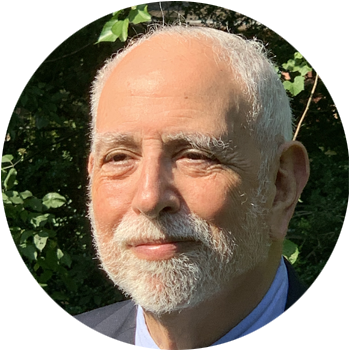1 Hour | 1 CE
This on-demand professional training program on Overview: Autism and the Law is presented by Michael L. Perlin, JD, and Heather Ellis Cucolo, JD in partnership with Mental Disability Law and Policy Associates.
In the past 50 years, autism spectrum disorder (ASD) has gone from a narrowly defined, rare disorder childhood-onset to a well-publicized, advocated, and researched lifelong condition, recognized as common and very heterogeneous. It results from early altered brain development and neural reorganization and is seen as a spectrum that can range from very mild to severe. There are important questions regarding the “under-recognition of ... symptoms [of autism] in some racial/ethnic groups, cultural differences influencing the decision to seek services, [and] socioeconomic disparities in access to services.”
Persons with autism typically have deficits in social communication (struggling with sustained social interactions and two-way conversations), nonverbal communication (making poor eye contact, having difficulty understanding body language and facial expressions), and maintaining social relationships (often having difficulty in adjusting behaviors to match different social situations). They are perceived as lacking in both empathy and remorse.
All of this makes it much more difficult for a person with autism in the criminal justice system, especially when their fate is to be decided by jurors who may either have no familiarity with autism or whose “familiarity” is based on a television stereotype. As a result, participation in such a system is often humiliating and shaming.
Juror failure to understand the behavior and physical “cues and clues” of persons with autism spectrum disorder imperils fairness in criminal trials. Byways of example, judges must explain to jurors that they cannot rely on their false “ordinary common sense”: about what remorse “looks like” or what an empathetic person “looks like,” expert witnesses must be provided for the person at risk to explain to the factfinder the reasons for otherwise-strange-seeming behavior, and greater care must be taken in selecting jurors for such trials. Only if remedies such as these are adopted will we be able to break the cycle of shame and humiliation that this population now faces. If we wish to remediate this situation, we must adopt a new approach to trials of persons with autism to provide dignity to the persons at risk and to comply with the principles of therapeutic jurisprudence. We propose prophylactic remediations— ranging from questioning at the voir dire stage to jury instructions — to make it less likely that neurodiverse individuals will be stereotypically punished for behavior and appearances that may be, by and large, foreign to jurors. These reforms will make it more likely that trials comport with due process (by avoiding the sort of false ‘ordinary common sense that often drives juror behavior) and will enhance the role of therapeutic jurisprudence in this process.

Intended Audience
This on-demand professional training program is intended for mental health and other allied professionals

Experience Level
This on-demand professional training program is appropriate for beginner, intermediate, and advanced level clinicians.

CE / CPD Credit
APA, ASWB, CPA, NBCC Click here for state and other regional board approvals.
Learning Objectives
Upon completion of this program you will be able to:

Describe the significance of the jury selection process and the jury charge in cases involving defendants with autism

Describe why jurors’ misperceptions of remorse and empathy on the part of individuals with autism is critical in the trials of cases involving such defendants

Describe the global errors made by judges in sentencing defendants with autism

Develop a Specialty Area of Practice
Transforming mental health professionals into experts
Expert Instructors
Professional training developed and delivered by the field's leading experts

CE Credit
Earn CE credit for meaningful professional training that will elevate your practice
Convenience & Flexibility
Learn at your own pace, from wherever you might be!
Program Partner
Mental Disability Law and Policy Associates (MDLPA)
We are proud to partner with Mental Disability Law and Policy Associates, LLC for this training. MDLPA is a boutique educational training company that offers specialized mental disability law consulting, the creation or enhancement of distance learning programs, in-house or online courses, and day or weekend training seminars to reputable organizations, educational institutions, professional groups, and advocacy groups focused on providing advanced knowledge and skills to persons working with marginalized populations.

CE Sponsorship Information
Palo Alto University, Continuing and Professional Studies (CONCEPT) is approved by the American Psychological Association to sponsor continuing education for psychologists. Palo Alto University, Continuing and Professional Studies (CONCEPT) maintains responsibility for this program and its content. Palo Alto University, Continuing and Professional Studies (CONCEPT) is approved by the Canadian Psychological Association to offer continuing education for psychologists. Palo Alto University, Continuing and Professional Studies (CONCEPT), SW CPE is recognized by the New York State Education Department’s State Board for Social Work as an approved provider of continuing education for licensed social workers #SW-0356 and the New York State Education Department’s State Board for Mental Health Practitioners as an approved provider of continuing education for licensed mental health counselors. #MHC-0073. Palo Alto University, Continuing and Professional Studies (CONCEPT) has been approved by NBCC as an Approved Continuing Education Provider, ACEP No. 6811. Programs that do not qualify for NBCC credit are clearly identified. CONCEPT Professional Training, #1480, is approved to offer social work continuing education by the Association of Social Work Boards (ASWB) Approved Continuing Education (ACE) program. Organizations, not individual courses, are approved as ACE providers. State and provincial regulatory boards have the final authority to determine whether an individual course may be accepted for continuing education credit. CONCEPT Professional Training maintains responsibility for this course. ACE provider approval period: 11/22/23-11/22/26. Social workers completing this course receive (clinical or social work ethics) continuing education credits.



